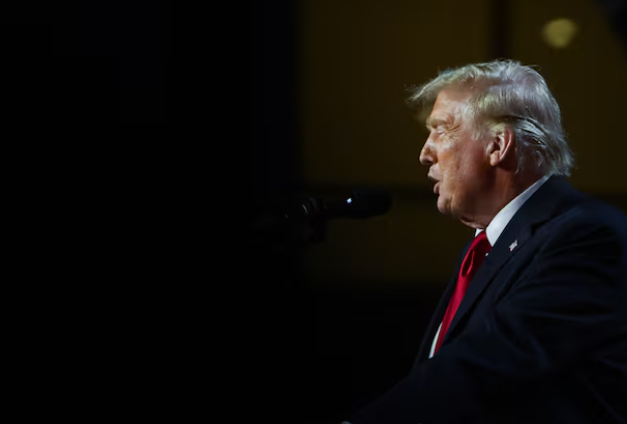Donald Trump’s claimed victory in the 2024 U.S. presidential election will effectively end the criminal cases against him, at least for the duration of his time in office.
Trump, the first former U.S. president to face criminal charges, has spent much of this year defending himself in four ongoing legal cases. These charges stem from a variety of allegations, including his efforts to cover up a hush-money payment to porn star Stormy Daniels during his 2016 campaign and his attempts to overturn his 2020 election loss. In May, a New York jury convicted Trump of falsifying business records related to the Daniels payment, making him the first former president convicted of a felony.
On October 24, Trump told an interviewer that he would fire U.S. Special Counsel Jack Smith — the prosecutor leading the federal investigations into Trump’s efforts to overturn the 2020 election and his retention of classified documents — “within two seconds” of being sworn in. Trump has pleaded not guilty to all charges and framed the legal cases as politically motivated attacks against him.
“The American people have heard these Democrat prosecutors’ cases against President Trump, and they’re still going to elect him anyway,” said Mike Davis, founder of the Article III Project, a conservative legal advocacy group.
As president, Trump would have the authority to remove Smith and shut down the federal investigations into his actions. However, Trump would not have the same control over the New York hush-money case or the Georgia case, in which prosecutors charge him with attempting to reverse his defeat in the state’s 2020 election. Yet, Trump’s position as president would likely prevent him from facing legal consequences in either case during his term in office.
“He was properly charged with crimes within the system we have,” said Kristy Parker, a special counsel at Protect Democracy, a group dedicated to addressing what it calls authoritarian threats to the U.S. “If Trump shuts down the cases, that won’t mean it was the right thing.”
One more court date is scheduled before Trump is sworn in on January 20, but legal experts suggest that this will likely be delayed.
New York Hush Money Case
In New York, Trump’s lawyers are expected to request a delay in his sentencing, which is currently scheduled for November 26. Trump could face up to four years in prison. Sentencing a president-elect before Inauguration Day would be unprecedented, and legal experts anticipate that the court will delay the hearing.
Justice Juan Merchan has already postponed Trump’s sentencing twice. The delays stemmed, in part, from a U.S. Supreme Court ruling in July that granted presidents broad immunity from prosecution over their official acts. Trump’s legal team argues that the case should be dismissed based on this ruling, though prosecutors dispute that interpretation. Trump has vowed to appeal the conviction once sentenced and has asked the 2nd U.S. Circuit Court of Appeals to move the case to federal court. A successful appeal could complicate the case further.
Federal Prosecutions
Trump faces four federal charges in Washington related to his efforts to block the certification of votes following the 2020 election loss to Joe Biden. Smith has also charged Trump with unlawfully retaining classified documents after leaving office in 2021 and obstructing government efforts to recover the materials.
In July, Florida-based U.S. District Judge Aileen Cannon — appointed by Trump — dismissed all charges, ruling that Smith’s appointment was improper. Smith’s team is appealing the decision, but Trump’s pledge to fire Smith upon taking office signals that the case may end before it progresses further.
Georgia Racketeering Case
In Georgia, prosecutors in Fulton County used state racketeering laws — originally designed to combat organized crime — to charge Trump with allegedly conspiring to overturn his 2020 election defeat in the state. Trump cannot end this prosecution, but his lawyer has already argued in court that a sitting president should not face a criminal prosecution while in office.
Trump and eight of his 14 co-defendants in the Georgia case are asking a state appeals court to disqualify the lead prosecutor, Fulton County District Attorney Fani Willis, due to alleged misconduct stemming from a romantic relationship she had with a former deputy. Oral arguments are scheduled for December 5.
If that effort fails, the case will proceed against the other co-defendants, including Trump’s former personal lawyer Rudy Giuliani and White House Chief of Staff Mark Meadows. However, legal experts predict that the case against Trump will not advance while he serves as president.

